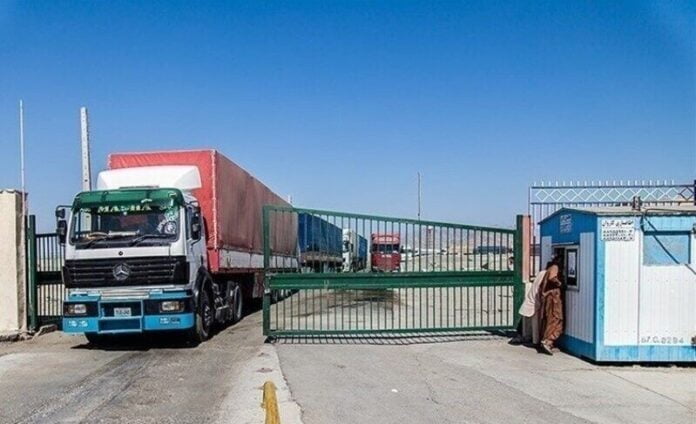An Iranian official announced on Tuesday that exports from Iran to Iraq have decreased due to several factors, including the fluctuation of the dollar exchange rate.
The former Secretary of the Iranian-Iraqi Chamber of Commerce stated in a press release that Iranian merchants receive 1,600 Iraqi dinars for every dollar they exchange. In comparison, business people from other countries receive 1,300 dinars, equal to the official exchange rate in Iraq. He emphasized that the difference in exchange rates is a significant challenge for Iranian merchants. He added that a markup of up to 15% is acceptable for Iranian business people, but anything beyond that would make their business operations more difficult.
Hamid Hosseini highlighted that prohibiting importing agricultural goods from Iran to Iraq is intended to boost the production of these goods within Iraq. He also noted that Iraq has restricted the import of certain agricultural products from Iran as a means of promoting the growth of domestic farm production.
“The southern regions of Iraq, including Basra and Dhi Qar, have abundant agricultural lands which have been successful in recent years in raising fish and growing crops, thanks to the government’s support in providing water. Farmers in these regions have expressed opposition to import operations, and in response, the central government has decided to prohibit imports. On the other hand, the Kurdistan Regional Government of Iraq regulates imports by adjusting customs duties.”
Hosseini emphasized that the import ban applies only during seasons when Iraqi domestic production is high. He further explained that once the import of Iranian products into Iraq is restricted, the internal stock will decrease, and after a short period, demand will increase again.
“Exporting water-intensive agricultural products is unsuitable for Iran,” he added.
Regarding the ban on importing apple trees, Hosseini clarified that only apple trees are affected, not other agricultural products.
During a recent discussion, a representative from the Chamber of Commerce explained the rationale behind imposing tariffs on Iranian rebar imports to Iraq. According to the representative, Iraq produces approximately 3.5 million tons of rebar yearly, but the domestic product cannot compete with a similar product from Iran. As a result, Iraq has implemented customs tariffs on imported Iranian rebar, ranging from $70 to $80 per unit.
Hosseini identified the currency exchange rate as the main obstacle to exporting Iranian goods to Iraq.
He explained that Iranian business people pay 20% more for exchange rates in Iraq than people in business from other countries.





